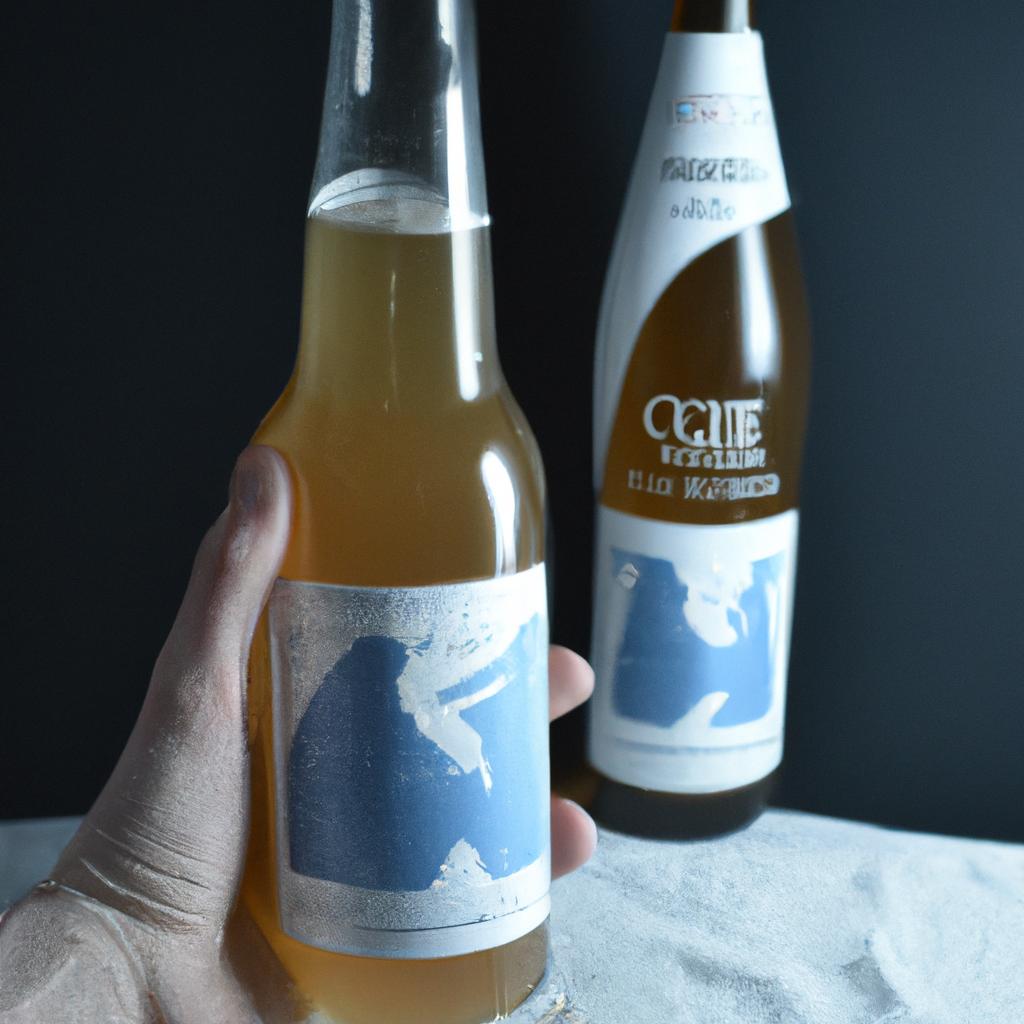As a passionate brewer, I always love to explore different types of beers, their unique characteristics, and the brewing process behind them. In this blog post, we will dive deep into the world of Gose beers, and more importantly, answer the burning question: are Gose beers gluten-free?
Gose beers are not gluten-free since they are made from malted barley, which contains gluten. However, some breweries produce gluten-reduced Gose beers by using enzymes that break down gluten during the brewing process.
Now that we have answered the main question, let’s dive deeper into the world of Gose beers and explore various aspects of this unique, sour, and salty beer style. We will discuss the history, brewing process, flavor profile, and much more.
1. The History of Gose Beers
Gose, pronounced “go-zuh,” is an ancient beer style that originated in the town of Goslar, Germany, in the early 16th century. It is named after the river Gose, which flows through the town. This style of beer almost disappeared in the 20th century due to the rise of lagers and pilsners. However, it has seen a resurgence in recent years, thanks to the craft beer movement and the growing popularity of sour beers.
2. The Gose Brewing Process
The brewing process of Gose beers is similar to other beers, but with a few key differences:
1. *Malted barley and wheat*: Gose beers are brewed with a combination of malted barley and wheat, which gives them their characteristic hazy appearance and smooth mouthfeel.
2. *Top-fermenting yeast*: Gose beers are brewed using top-fermenting yeast, which is more typical of ales than lagers.
3. *Spontaneous fermentation*: Some traditional Gose beers are made using spontaneous fermentation, where the wort is left to cool in open vessels and is inoculated with wild yeast and bacteria from the local environment.
4. *Lactic acid bacteria*: Gose beers are intentionally soured by the addition of lactic acid bacteria, which gives them their distinctive tartness.
5. *Salt and coriander*: Gose beers are flavored with salt and coriander, which gives them a unique salty and herbal character.

3. The Appearance of Gose Beers
Gose beers have a hazy, pale golden to straw-yellow appearance, due to the use of malted wheat in the brewing process. They usually have a moderate to high level of carbonation, which helps to lift the tart and salty flavors off the palate. The head of a Gose beer is typically white and frothy.
4. The Aroma of Gose Beers
The aroma of Gose beers is complex and can be described as a mix of sour, salty, and herbal notes. You may pick up on the following when smelling a Gose beer:
1. *Lactic acidity*: The sourness from the lactic acid bacteria used in the brewing process.
2. *Salt*: The addition of salt gives Gose beers a distinctive briny aroma.
3. *Coriander*: The use of coriander imparts a subtle citrus and herbal note to the aroma.
4. *Yeast*: Depending on the yeast strain used, Gose beers can have fruity, spicy, or funky aromas.
5. The Flavor Profile of Gose Beers
The flavor of Gose beers is a delicate balance of sour, salty, and herbal notes. The tartness from the lactic acid bacteria is usually at the forefront, followed by a subtle salty sensation. The coriander adds a layer of complexity, with hints of citrus and herbal flavors. Overall, Gose beers have a light, refreshing, and slightly puckering taste.
6. Gose Beers and Food Pairings
Gose beers are incredibly versatile when it comes to food pairings. Their tart, salty, and herbal flavors can complement or contrast a variety of dishes. Here are some food pairing suggestions for Gose beers:
1. *Seafood*: The salty character of Gose beers works well with fresh seafood, such as oysters, shrimp, or ceviche.
2. *Grilled vegetables*: The tartness of Gose beers can help to cut through the richness of grilled vegetables, such as asparagus, zucchini, or eggplant.
3. *Soft cheeses*: Gose beers can help to cleanse the palate when paired with soft, creamy cheeses like Brie or Camembert.
4. *Fruit desserts*: The sour and fruity notes of Gose beers can complement fruit-based desserts like sorbets, fruit tarts, or berry crumbles.
7. Gluten-Free and Gluten-Reduced Gose Beers
As mentioned earlier, Gose beers are not gluten-free due to the use of malted barley in the brewing process. However, some breweries produce gluten-reduced Gose beers by using enzymes that break down gluten during the brewing process. These beers may be suitable for people with a gluten sensitivity, but they are not recommended for those with celiac disease.
8. Popular Gose Beers to Try
If you’re interested in trying Gose beers, here is a list of some popular options to explore:
1. *Leipziger Gose* by Bayerischer Bahnhof: A traditional German Gose beer with a tart, salty, and herbal character.
2. *Westbrook Gose* by Westbrook Brewing Company: An American take on the Gose style, with a bold tartness and a hint of coriander.
3. *The Kimmie, The Yink & The Holy Gose* by Anderson Valley Brewing Company: A refreshing Gose beer with a bright citrusy flavor and a touch of sea salt.
4. *SeaQuench Ale* by Dogfish Head Craft Brewery: A session sour ale that combines Gose, Berliner Weisse, and Kölsch styles for a complex and thirst-quenching beer.
Conclusion
In conclusion, while traditional Gose beers are not gluten-free, there are gluten-reduced options available for those with a gluten sensitivity. Gose beers offer a unique and intriguing combination of sour, salty, and herbal flavors, making them a must-try for beer enthusiasts.
Here are 10 facts about Gose beers to remember:
1. Gose beers originated in Goslar, Germany, in the early 16th century.
2. They are named after the river Gose, which flows through the town.
3. Gose beers are brewed with malted barley and wheat, which contain gluten.
4. They are flavored with salt and coriander.
5. Gose beers are soured with lactic acid bacteria.
6. They have a hazy, pale golden appearance.
7. The aroma of Gose beers is a mix of sour, salty, and herbal notes.
8. They have a tart, salty, and herbal flavor profile.
9. Gose beers pair well with seafood, grilled vegetables, soft cheeses, and fruit desserts.
10. Some breweries produce gluten-reduced Gose beers using enzymes that break down gluten during the brewing process.
FAQs
Does a gose beer have gluten?
Most gose beers are made with malted barley, which contains gluten. However, there are some breweries that produce gluten-free gose beers using alternative grains such as millet, quinoa, or rice. It’s always best to check with the specific brewery or read the label to determine if a gose beer contains gluten.
Do sours have barley in them?
Sours can have barley in them, as it is a common ingredient in beer. However, not all sours necessarily contain barley, as there are alternative grains and methods of brewing that can be used.
What beers do not have barley?
Beers that do not have barley include gluten-free beers made from alternative grains such as sorghum, rice, quinoa, and millet.
What major beers are gluten free?
Some major gluten-free beer brands are Omission, Glutenberg, New Belgium’s Glutiny, and Bard’s.
Is there barley in sour beer?
Yes, there is often barley in sour beer. Barley is a common ingredient in beer, and sour beer is no exception. However, other grains such as wheat, rye, and oats may also be used in the brewing process.
Which sour beers are gluten-free?
Sour beers are typically made with grains that contain gluten, such as barley and wheat. However, there are some sour beers that are brewed with gluten-free grains, such as sorghum, rice, and millet. Examples of gluten-free sour beers include Green’s Quest Tripel Blonde Ale, Dogfish Head Tweason’ale, and Ghostfish Brewing Grapefruit IPA. It’s important to read the label or contact the brewery to confirm that a sour beer is gluten-free before consuming it.




